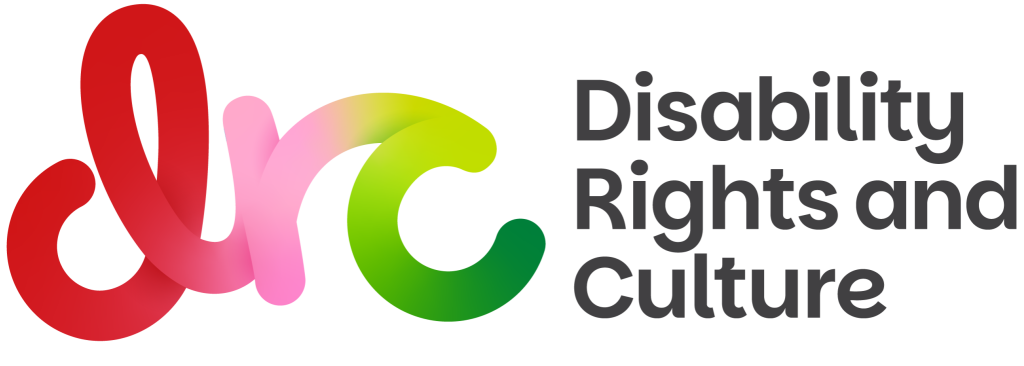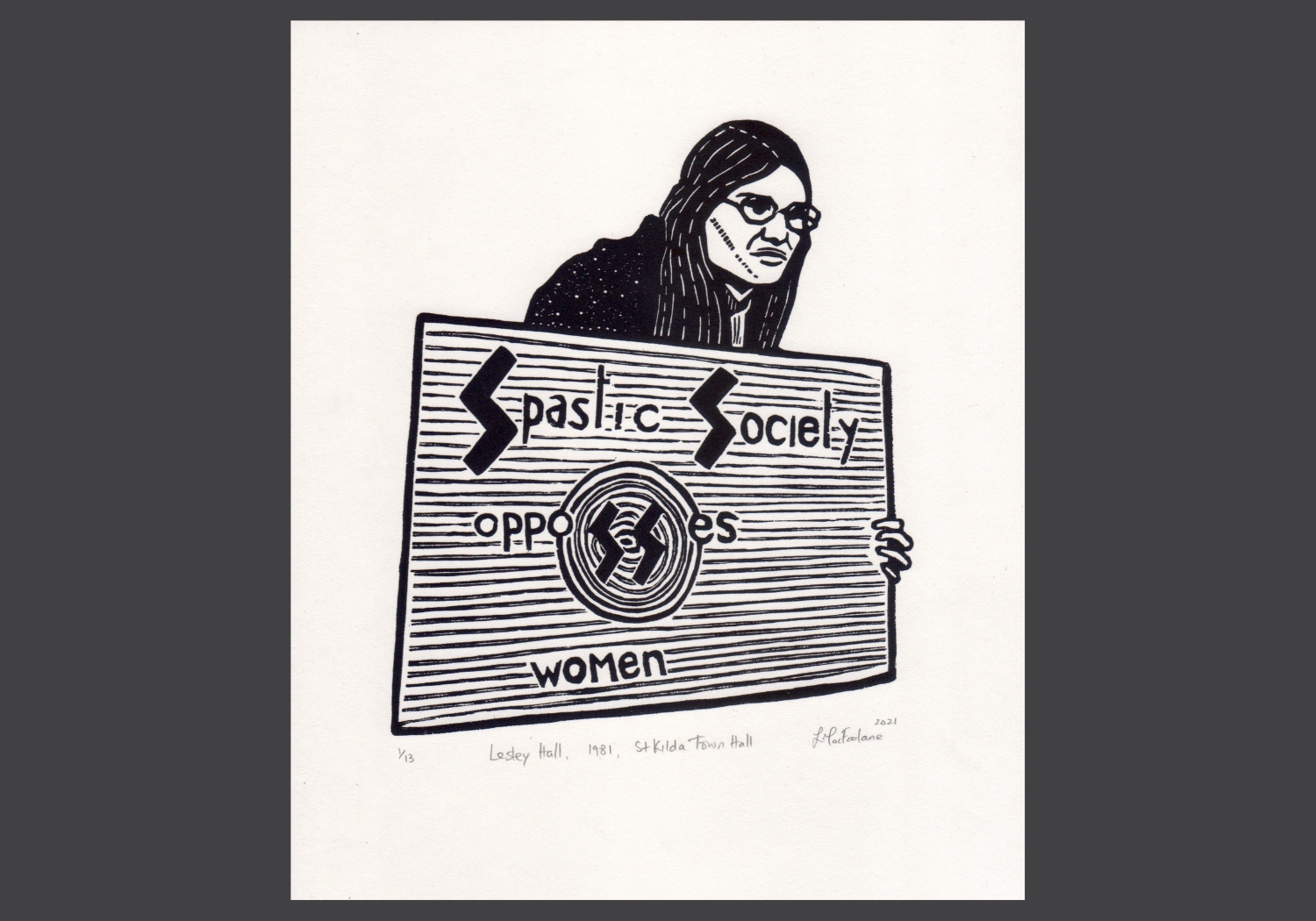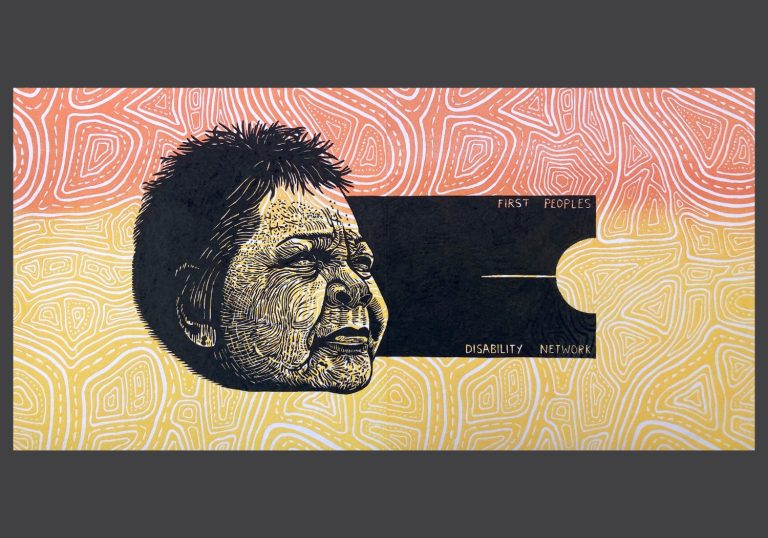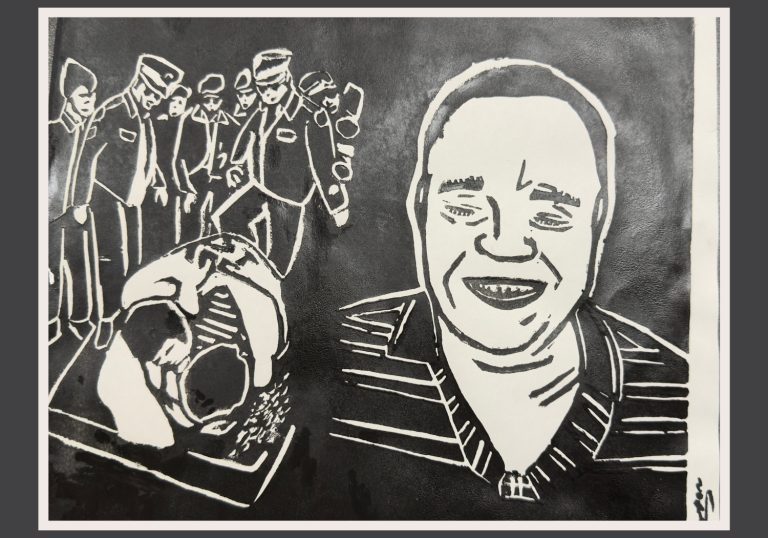By Larissa MacFarlane
Lesley was a feminist disaiblity advocate and leader in the Disability and Workers Right’s movements. She trained and worked as a teacher, and worked in numerous community and arts organisations. Lesley was one of the founders of the Women with Disabilities Feminist Collective (WDFC), now known as Women with Disabilities Australia (WWDA). She was CEO of the Australian Federation of Disability Organisations (AFDO) and from 2008 to 2013, where she played a foundational role in establishing the National Disability and Carers Alliance and influencing the formation of the NDIS. She was also Chair of Arts Access Victoria.
Throughout her life Lesley was a passionate advocate and activist against beauty pageants. The representation of Lesley in this artwork is based on a famous photograph of her protest action at the Miss America Quest pageant in St Kilda in 1981. Lesley was strongly opposed to the inherent contradiction in events like these that raised money to support children with cerebral palsy, yet objectified physical perfection and excluded people with disability. The sign she holds in this artwork defiantly utilises a style of ’S’ reminiscent of the Schutzstaffel or SS, and likely references the targeting of disabled people under Nazi eugenics policies.
Lesley has long been a source of strength for me. We both worked in Ross House for many years and I feel fortunate to have witnessed her might first hand. But I only learnt of the huge contributions she has made to Australian disabled people after she died. Since then her legacy has inspired me to be braver and to speak out more.
“Disability is a feminist issue.”
– Lesley Hall




